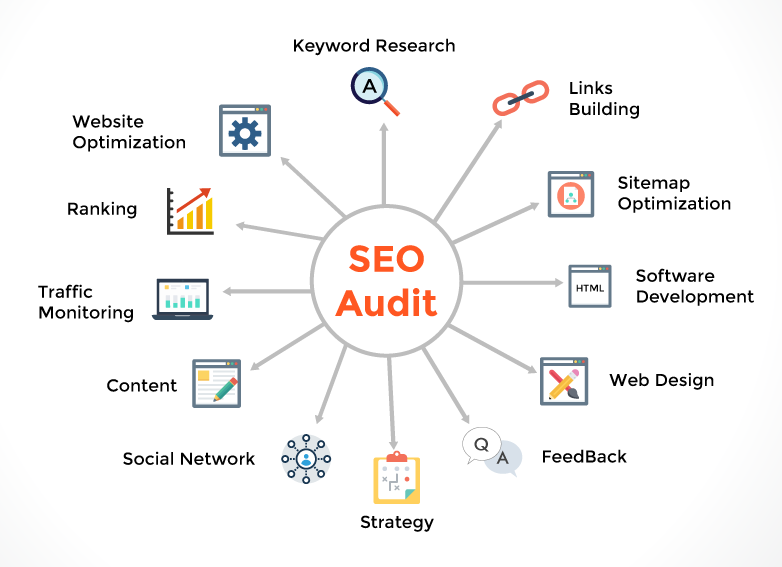What Is an SEO Audit? A Beginner’s Guide
If you’re looking to improve your website’s search engine rankings, an SEO audit is a crucial step. But what exactly is an SEO audit? Simply put, it’s a detailed analysis of your website’s SEO performance to identify issues that might be affecting your rankings.
An SEO audit helps you understand how search engines see your site and highlights areas for improvement. Whether you own a blog, an eCommerce site, or a corporate website, regular SEO audits can make a huge difference in your online visibility and traffic.

Understanding SEO Audits
An SEO audit is like a health check-up for your website. It examines various elements that impact your site’s ability to rank on Google, Bing, and other search engines.
The Core Purpose of an Audit
- Identifies technical, on-page, and off-page SEO issues.
- Helps improve search engine rankings.
- Ensures your website follows the latest SEO best practices.
- Enhances user experience and website performance.
Different Types of SEO Audits
There are multiple types of SEO audits, each focusing on different aspects of your website’s performance:
- Technical SEO Audit — Checks website structure, speed, and mobile-friendliness.
- On-Page SEO Audit — Evaluates content, keyword usage, and metadata.
- Off-Page SEO Audit — Examines backlinks and domain authority.
- Local SEO Audit — Focuses on local search optimization.
- Content SEO Audit — Reviews the quality and relevance of your content.
Why Audits Are Essential
Still wondering why an SEO audit matters? Here are some key reasons:
- Identifies Website Issues: SEO audits uncover hidden problems, like broken links or duplicate content, that could be hurting your rankings.
- Improves Search Engine Rankings: By fixing SEO issues, your site becomes more optimized for search engines, leading to better rankings.
Types of SEO Audits
Understanding the different types of SEO audits can help you perform a more effective website evaluation.
1. Technical Audit
A technical SEO audit focuses on the backend structure of your website. It examines:
- Site speed and performance
- Mobile-friendliness
- Website security (HTTPS)
- Indexability & crawlability

2. On-Page Audit
This audit evaluates elements directly on your website, such as:
- Meta titles & descriptions
- Keyword optimization
- Internal linking
- Image SEO
3. Off-Page Audit
Your website’s authority is influenced by external factors, including:
- Backlink profile
- Domain authority
- Social signals
4. Local Audit
For businesses targeting local customers, a local SEO audit checks:
- Google My Business optimization
- NAP (Name, Address, Phone) consistency
- Customer reviews
5. Content Audit
Your website’s content plays a major role in SEO success. A content audit reviews:
- Content quality and relevance
- Duplicate content issues
- Readability and engagement
Click here to read more



Comments
Post a Comment